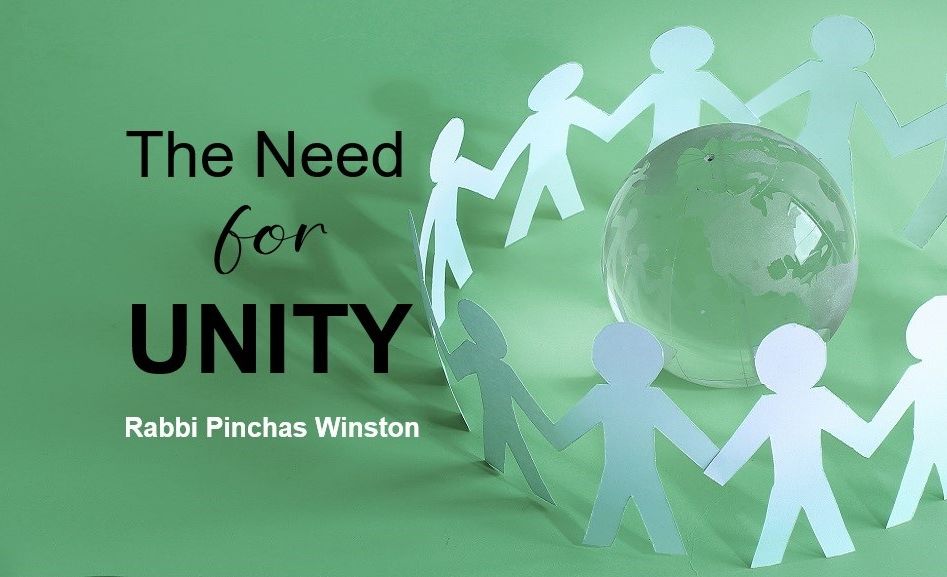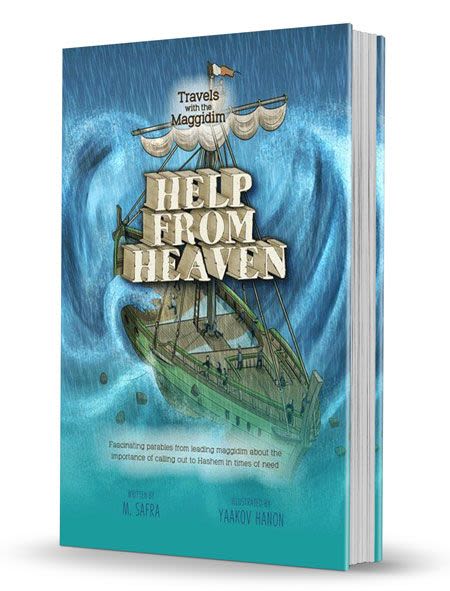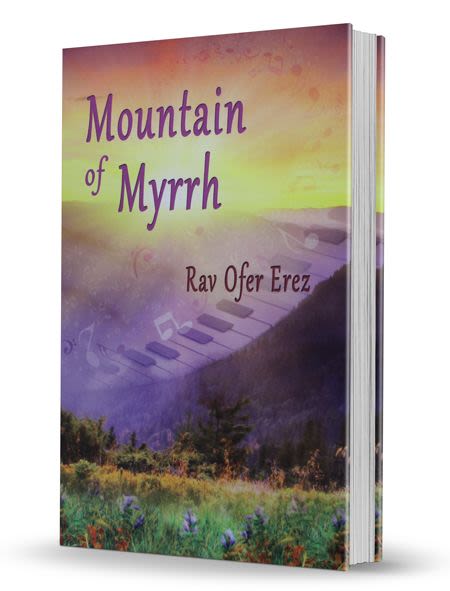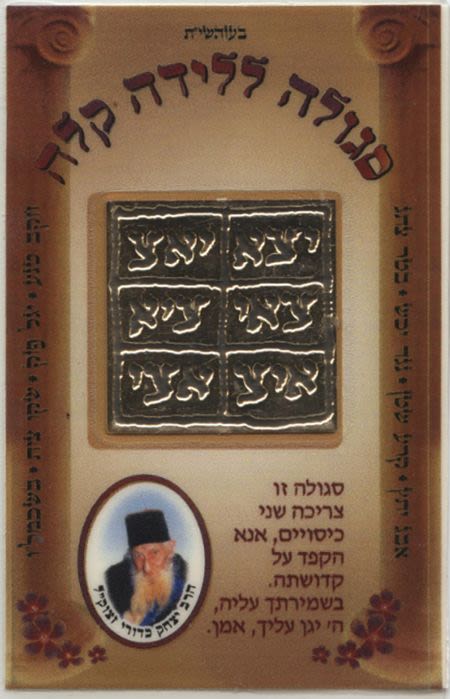
Vayechi: Like Waves Of The Sea
Part of the problem was the element of surprise. Everyone was caught totally off guard by the wave of hostility that spread across Europe. Foxman argues...

FRIDAY NIGHT:
כח וַיְחִ֤י יַֽעֲקֹב֙ בְּאֶ֣רֶץ מִצְרַ֔יִם שְׁבַ֥ע עֶשְׂרֵ֖ה שָׁנָ֑ה וַיְהִ֤י יְמֵי־יַֽעֲקֹב֙ שְׁנֵ֣י חַיָּ֔יו שֶׁ֣בַע שָׁנִ֔ים וְאַרְבָּעִ֥ים וּמְאַ֖ת שָׁנָֽה
Ya’akov lived in the land of Egypt seventeen years . . . (Bereishit 47:28)
The final chapter of the conflict between Yosef and his brothers came to a close; a new chapter was being written, and it was not a happy one. As Rashi points out, this is indicated by the fact that in a Sefer Torah this parshah is “closed,” that is, it begins in the middle of a line without the normal spacing between it and at the end of the previous parshah.
Rashi explains that this anomaly represents the eyes and the hearts of the Jewish people in Egypt at that time. The oppression was coming, and their eyes and hearts became “closed” as a result, meaning that they entered a state of despair with the death of Ya’akov Avinu.
However, Rabbi Moshe Feinstein, zt”l, was bothered by Rashi’s explanation, and in providing an answer to his question, he provided an important insight and warning about our own state of exile. Asked Rav Moshe:
But Ya’akov was still alive [at the beginning of the parshah], so why would they (their eyes and hearts) become closed here; the oppression did not even begin until Yosef and the tribes died [many years later]? Rather, you have to conclude that until now they had not felt as if they were in exile – even though they had become dependent on the good will of another – and that the Holy One, Blessed is He, had not brought them there for good. Indeed, there is no greater exile than being under the rulership of another, even if he is beneficent. (Darash Moshe, Vayechi)
In other words, even though Ya’akov and his family, which according to the Torah numbered seventy at that time, had uprooted themselves from Eretz Canaan and moved south to Egypt, it did not feel like exile, it just felt like a friendly change of location. The fact that Yosef was second-in-command over Egypt and needed by Pharaoh, probably gave the arriving Jewish nation a sense of belonging. In modern day terminology, they arrived in Egypt with plenty of “protectsia,” and that probably distracted them from why they had come down to Egypt and what they were meant to accomplish while there.
However, they had gone from being their own bosses to being guests in someone else’s home, and that was the beginning of subservience. And, even though Pharaoh was in a magnanimous mood at the time and Yosef was there to pave their paths with gold, it was a sign of things to come. For how long could they expect the situation to remain good?
Rav Moshe continued:
Therefore, since they had not previously felt it, the exile appeared to begin suddenly, and thus their eyes and hearts became closed because of the troubles of the oppression. (Ibid.)
We see it so many times throughout our multi-millennia history: two agendas, ours and G-d’s. In truth, ever since we left Mt. Sinai the year after receiving the Torah, we have been on one long journey that has been passed on from generation to generation. G-d’s agenda has always been to help us complete that journey as soon as possible, but that means bringing history to an end and bringing in Yemot HaMashiach.
We, on the other hand, are only concerned about the immediate journey, our personal one. And, when we arrive some place where we can settle down, we tend to make ourselves feel right at home, basically forgetting that we are in exile. And why not if we were received with open arms and we are prospering, as we once did in Spain, Europe, and now in America?
SHABBAT DAY:
כט וַיִּקְרְב֣וּ יְמֵֽי־יִשְׂרָאֵל֘ לָמוּת֒ וַיִּקְרָ֣א | לִבְנ֣וֹ לְיוֹסֵ֗ף וַיֹּ֤אמֶר לוֹ֙ אִם־נָ֨א מָצָ֤אתִי חֵן֙ בְּעֵינֶ֔יךָ שִֽׂים־נָ֥א יָֽדְךָ֖ תַּ֣חַת יְרֵכִ֑י וְעָשִׂ֤יתָ עִמָּדִי֙ חֶ֣סֶד וֶֽאֱמֶ֔ת אַל־נָ֥א תִקְבְּרֵ֖נִי בְּמִצְרָֽיִם
The time approached for Israel to die . . . (Bereishit 47:29)
History has answered that question on more than one occasion, and Rav Moshe speaks it out:
However, had they felt in exile while Ya’akov was still alive, the oppression would not have had such an impact of them. But with the death of Ya’akov, they felt in they were in exile since the burial could not take place without the permission of Pharaoh. Thus, we are made aware of how they did not feel the exile while Ya’akov was still alive, as Ya’akov himself did not want to go down to Egypt until G-d promised He would bring him up. (Darash Moshe, Vayechi)
Settling into exile leaves us vulnerable. It is not merely that the gentile nations that once accepted us with equanimity all of a sudden have a change of heart and turn against us. It is more that G-d’s agenda for our history and development reaches a point that contradicts our personal agendas for our lives in exile, hitting us straight on.
It is a like riding the train. The passengers are only concerned about two points, where they got on and where they have to get off. However, the conductor of the train is worried about every stop along the way. He prepares for every stop while his passengers stand reading the newspaper, jerking back and forth as the train stops and starts again without much warning.
Sometimes the train has to stop quickly, and the passengers are thrown from their positions of security. They can even get hurt, twisting their arms as they struggle to remain holding onto the safety poles, bumping into one another and parts of the train before regaining their equilibrium. Only the passengers who pay attention to the journey of the train, anticipating its every move are protected. Their journey is that of the train’s, and they are one with it, so-to-speak.
Look at the following quote taken from an article a couple of years ago:
Part of the problem was the element of surprise. Everyone was caught totally off guard by the wave of hostility that spread across Europe. Foxman argues that the ADL (Anti-Defamation League) never let down its guard either in America or in Europe, but there was a complacency that had settled over Jews. Perhaps it was what some call the golden age of the nineties, when the Israelis and Palestinians, guided by the Oslo accords, appeared headed toward an agreement. Whatever it was, Foxman says he regularly got into arguments with people telling him it was time for the ADL to close its doors. ” ‘Stop counting swastikas in bathrooms,’ ” people told him. ” ‘The threat is assimilation, not antisemitism. We should be spending the money on Jewish education.’ ” (From the December 15, 2003 issue of New York Magazine)
Jewish history has rules. Some rules have been made by men, and they can be broken or at least bent with minimum consequence. However, the rules made by G-d are immutable, unbreakable, and trying to break them brings with it inevitable and often severe consequences. Not as a matter of punishment (for that is saved for a future date with the Heavenly Court), but as a matter of cause-and-effect relationship built into Creation, as described in Parashot Bechukotai and Ki Tavo.
Indeed, the extremity of an exile is really dependent upon us, and how well we know its rules and goals. As the Ramchal and the Vilna Gaon point out, the more we do to bring about the goals of an exile, the less we have to undergo to bring about its end and subsequent redemption. The more we live with the reality that we are in exile, even when things are going well for us, the less of a shock we will suffer when the exile turns a nasty corner, as it seems to be doing once again for the umpteenth time.
Our eyes and hearts need not close; despair does not have to be the reaction to these difficult times for the Jewish people. On the contrary, it has a different effect on those who live with the reality of exile, who travel the train with a sense of Jewish history. Their agenda is G-d’s, and it is during times like these that they are galvanized into positive action, for that too is one of the main reasons for exile, as we shall soon see, b’ezrat Hashem.
SEUDAH SHLISHIT:
מה וַיֹּ֚אמֶר דָּוִד֙ אֶל־הַפְּלִשְׁתִּ֔י אַתָּה֙ בָּ֣א אֵלַ֔י בְּחֶ֖רֶב וּבַחֲנִ֣ית וּבְכִיד֑וֹן וְאָנֹכִ֣י בָֽא־אֵלֶ֗יךָ בְּשֵׁם֙ יְהֹוָ֣ה צְבָא֔וֹת אֱלֹהֵ֛י מַעַרְכ֥וֹת יִשְׂרָאֵ֖ל אֲשֶׁ֥ר חֵרַֽפְתָּ
מו הַיּ֣וֹם הַזֶּ֡ה יְסַגֶּרְךָ֩ יְהֹוָ֨ה בְּיָדִ֜י וְהִכִּיתִ֗ךָ וַהֲסִרֹתִ֚י אֶת־רֹֽאשְׁךָ֙ מֵעָלֶ֔יךָ וְנָ֨תַתִּ֜י פֶּ֣גֶר מַחֲנֵ֚ה פְלִשְׁתִּים֙ הַיּ֣וֹם הַזֶּ֔ה לְע֥וֹף הַשָּׁמַ֖יִם וּלְחַיַּ֣ת הָאָ֑רֶץ וְיֵֽדְעוּ֙ כָּל־הָאָ֔רֶץ כִּ֛י יֵ֥שׁ אֱלֹהִ֖ים לְיִשְׂרָאֵֽל
מז וְיֵֽדְעוּ֙ כָּל־הַקָּהָ֣ל הַזֶּ֔ה כִּֽי־לֹ֛א בְּחֶ֥רֶב וּבַחֲנִ֖ית יְהוֹשִׁ֣יעַ יְהֹוָ֑ה כִּ֚י לַֽיהֹוָה֙ הַמִּלְחָמָ֔ה וְנָתַ֥ן אֶתְכֶ֖ם בְּיָדֵֽנוּ
“You come to me with spear and javelin, and I come to you with the Name of the L-rd of Hosts, the G-d of the armies of Israel which you have taunted. This day the L-rd will deliver you into my hand, and I shall slay you . . . All this assembly shall know that not with sword and javelin does the L-rd save, for the battle is the L-rd’s, and He will deliver you into our hand.” (I Shmuel 17:45-47)
The Hebrew word for exile is “galut,” spelled: גלות (Gimmel-Lamed-Vav-Tav). The last two letters make the word plural, so the root of the word is the first two letters, גל (Gimmel-Lamed), the Hebrew word for wave. Perhaps this indicates that exile comes in waves, as it has for the Jewish people throughout the last three millennia of history. Perhaps this is the warning to the Jewish people that, until Mשshiach comes, peaceful times should never be misconstrued as the arrival of utopia, but just the sea winding up again for its next thrust.
Interestingly, the word for revelation – gilui גילוי – also is constructed using the letters Gimmel and Lamed, implying some kind of relationship between two concepts that seem to be polar extremes of one another. But that is only really the case when one’s agenda in exile is different from that of G-d’s.
Take the Philistine giant Goliath, for example. In Hebrew, his name is spelled גלית GIMMEL-LAMED-Yud-Tav – Golyat – very similar to the word galut – exile. A coincidence? No, not really. Golyat epitomized exile, taunting and pinning the Jews of his time down, paralyzing them with fear and tying up their spiritual resources. While he stood, hester panim – the hiding of G-‘s face – was the prevailing atmosphere. Where was G-d during all of this?
No one was quite sure at the time, until young David came to check on his brothers at the behest of his father, Yishai. They were part of Shaul HaMelech’s army, while David was still at home taking care of his father and the flocks. Like Yosef HaTzaddik before him, he was not too popular with his brothers, who rarely missed an opportunity to scorn him. His arrival at the battlefront provided another such opportunity.
Imagine the scene. There was the entire Jewish army with all of its greatest warriors, armed and ready for war, many of which, no doubt, were also great Torah scholars. All of a sudden in walked Dovid, unprotected and unarmed, except with the following weapon:
David told the Philistine, “You come to me with spear and javelin, and I come to you with the Name of the L-rd of Hosts, the G-d of the armies of Israel which you have taunted. This day the L-rd will deliver you into my hand, and I shall slay you . . . All this assembly shall know that not with sword and javelin does the L-rd save, for the battle is the L-rd’s, and He will deliver you into our hand.” (I Shmuel 17:45-47)
Oh, and a slingshot as well. And here is how the battle ended, right before the very eyes of two massive and skilled armies:
מח וְהָיָה֙ כִּֽי־קָ֣ם הַפְּלִשְׁתִּ֔י וַיֵּ֥לֶךְ וַיִּקְרַ֖ב לִקְרַ֣את דָּוִ֑ד וַיְמַהֵ֣ר דָּוִ֔ד וַיָּ֥רָץ הַמַּעֲרָכָ֖ה לִקְרַ֥את הַפְּלִשְׁתִּֽי
מט וַיִּשְׁלַח֩ דָּוִ֨ד אֶת־יָד֜וֹ אֶל־הַכֶּ֗לִי וַיִּקַּ֨ח מִשָּׁ֥ם אֶ֙בֶן֙ וַיְקַלַּ֔ע וַיַּ֥ךְ אֶת־הַפְּלִשְׁתִּ֖י אֶל־מִצְח֑וֹ וַתִּטְבַּ֚ע הָאֶ֙בֶן֙ בְּמִצְח֔וֹ וַיִּפֹּ֥ל עַל־פָּנָ֖יו אָֽרְצָה
נ וַיֶּחֱזַ֨ק דָּוִ֚ד מִן־הַפְּלִשְׁתִּי֙ בַּקֶּ֣לַע וּבָאֶ֔בֶן וַיַּ֥ךְ אֶת־הַפְּלִשְׁתִּ֖י וַיְמִיתֵ֑הוּ וְחֶ֖רֶב אֵ֥ין בְּיַד־דָּוִֽד
It happened that when the Philistine arose and moved closer towards David that Dovid hurried and ran to the line, towards the Philistine. David stretched his hand into the sack. He took a stone from there and slung it, and struck the Philistine in the forehead. The stone penetrated his forehead, and he fell on his face, upon the ground. Thus David overpowered the Philistine with the slingshot and stone, he smote the Philistine and killed him; there was no sword in David’s hand. (I Shmuel 17:48-50)
Hmph! Good thing David just happened to show up when he did, because who knows how long Golyat would have wreaked death and destruction upon the Jewish army!
That’s one way to look at it. But that would not be the correct way to look at it, or any exile for that matter.
MELAVE MALKAH:
א וַיֹּ֤אמֶר יְהֹוָה֙ אֶל־משֶׁ֔ה בֹּ֖א אֶל־פַּרְעֹ֑ה כִּֽי־אֲנִ֞י הִכְבַּ֤דְתִּי אֶת־לִבּוֹ֙ וְאֶת־לֵ֣ב עֲבָדָ֔יו לְמַ֗עַן שִׁתִ֛י אֹֽתֹתַ֥י אֵ֖לֶּה בְּקִרְבּֽוֹ
ב וּלְמַ֡עַן תְּסַפֵּר֩ בְּאָזְנֵ֨י בִנְךָ֜ וּבֶן־בִּנְךָ֗ אֵ֣ת אֲשֶׁ֤ר הִתְעַלַּ֨לְתִּי֙ בְּמִצְרַ֔יִם וְאֶת־אֹֽתֹתַ֖י אֲשֶׁר־שַׂ֣מְתִּי בָ֑ם וִֽידַעְתֶּ֖ם כִּֽי־אֲנִ֥י יְהֹוָֽה
G-d told Moshe, “Come to Pharaoh, for I have made his heart and the heart of his servants stubborn so that I can put these signs of Mine in his midst; so that you may relate in the ears of your son and your son’s son that I made a mockery of Egypt and My signs that I place among them – that you may know that I am G-d.” (Shemot 10:1-2)
The other way to look at the David and Golyat episode is to know that all that had happened until that moment had been for that moment. From the moment that Golyat was born and had yet to choose to be a warrior, and even before then for that matter, he existed for his confrontation with the future David.
Indeed, every last detail of that event, right down to all the people present at that time, was what it was in order to make possible David HaMelech’s famous and tremendously powerful words, the great Kiddush Hashem he caused that day, the great revelation of the reality of G-d that became clear through his against-all-odds victory.
For, the point of all Jewish exiles is the redemptions that they set up. The point of all hester panim (hiding of G-d’s face) is the gilui panim – revelation of G-d’s face – they lead to, when the time comes for it to happen. Or, as the Torah puts it:
. . . So that I can put these signs of Mine in his midst . . . that you may know that I am G-d.” (Shemot 10:1-2)
Man exists for no other reason but to know G-d, and the Jewish people exist for no other reason than to make the introduction. This is what the words mean:
ו אֲנִ֧י יְהֹוָ֛ה קְרָאתִ֥יךָ בְצֶ֖דֶק וְאַחְזֵ֣ק בְּיָדֶ֑ךָ וְאֶצָּרְךָ֗ וְאֶתֶּנְךָ֛ לִבְרִ֥ית עָ֖ם לְא֥וֹר גּוֹיִֽם
I am G-d; I called you for righteousness and I will strengthen your hand; and I formed you, and I made you for a people’s covenant, for a light to nations. (Yeshayahu 42:6)
That is, I created you to make clear My existence to mankind. And, we can do that, basically, in one of two ways. The first way is to make it clear that all we accomplish is only by the grace of G-d, like David HaMelech did in all aspects of his life, which is why he merited to do so before the eyes of so many, including his own brothers. Then galut is already gilui, and there is no need for any real exile since the revelation is already apparent.
And the other way? Just study Jewish history. Learn about all the waves of antisemitism that turned into tsunamis of unimaginable cruelty directed solely at the Jewish people. (Today’s headline: “We welcome assistance from all countries except Israel” – Akbar Alavi, Mayor of Kerman, the provincial capital of Bam, Iran – after an estimated 40,000 people have been killed in an earthquake. They’ll even sacrifice their own just to attack Israel.)
Just read the Torah:
מ וְהִתְוַדּ֤וּ אֶת־עֲוֹנָם֙ וְאֶת־עֲוֹ֣ן אֲבֹתָ֔ם בְּמַֽעֲלָ֖ם אֲשֶׁ֣ר מָֽעֲלוּ־בִ֑י וְאַ֕ף אֲשֶׁר־הָֽלְכ֥וּ עִמִּ֖י בְּקֶֽרִי
מא אַף־אֲנִ֞י אֵלֵ֤ךְ עִמָּם֙ בְּקֶ֔רִי וְהֵֽבֵאתִ֣י אֹתָ֔ם בְּאֶ֖רֶץ אֹֽיְבֵיהֶ֑ם אוֹ־אָ֣ז יִכָּנַ֗ע לְבָבָם֙ הֶֽעָרֵ֔ל וְאָ֖ז יִרְצ֥וּ אֶת־עֲוֹנָֽם
מב וְזָֽכַרְתִּ֖י אֶת־בְּרִיתִ֣י יַֽעֲק֑וֹב וְאַף֩ אֶת־בְּרִיתִ֨י יִצְחָ֜ק וְאַ֨ף אֶת־בְּרִיתִ֧י אַבְרָהָ֛ם אֶזְכֹּ֖ר וְהָאָ֥רֶץ אֶזְכֹּֽר
They will admit their mistakes and those of their ancestors, evil performed against Me, and that they walked contrary to Me, [and that it was for this reason] that I worked against them and brought them into the land of their enemies; if then they humble their hearts, if then they accept the punishment for their wrongdoings, then will I remember My covenant with Ya’akov, My covenant with Yitzchak, and My covenant with Avraham. (Vayikra 26:40-42)
There is no greater revelation of G-d to the world than the Jewish people returning to Torah and mitzvot, and there is no greater hiding of the reality of G-d than masses of Jews living without Torah and mitzvot. And there is no better way to bring about the former than through exile:
Rav said, “All the dates of redemption have already passed, and now it depends upon repentance and good deeds.” Shmuel said, “It is enough that the mourner remains in mourning!” This is like an earlier disagreement: Rebbi Eliezer said, “If Israel will repent then they will be redeemed, and if they will not, then they will not.” Rebbi Yehoshua said to him, “If they do not repent they will not be redeemed?! Rather, The Holy One, Blessed is He, will cause to rise a king who will make decrees as difficult as Haman’s were and Israel will repent and return to the right path.” (Sanhedrin 97b)
That is the point of exile. To look at it any other way is to be caught blind-sided when it takes its turn into the final stretch, as it makes its final sprint to the redemption it was always leading towards. Surprised?
***
Pinchas Winston is the author of over 95 books on various topics that deal with current issues from a traditional Jewish perspective. He has also written on the weekly Torah reading since 1993, called “Perceptions”, as well as on current topics and trends affecting Jewish history, past and present. One of his missions is to make the depth and beauty of the more mystical teachings of Torah understandable and accessible to those who can really benefit from them. Visit his website at thirtysix.org.












Tell us what you think!
Thank you for your comment!
It will be published after approval by the Editor.